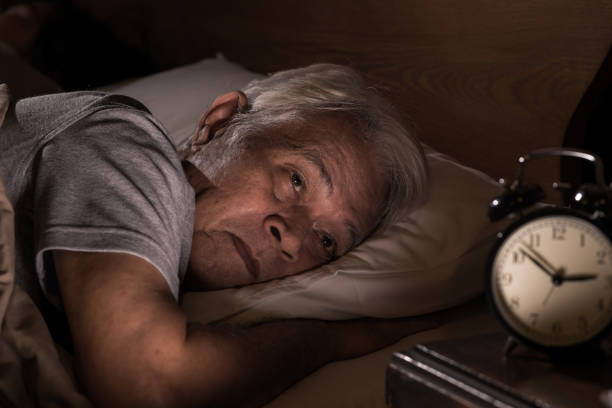Insomnia is not something to joke about. I have had problems sleeping at night for as long as I can remember. My mother would talk about finding me wandering the house at night as a very young child. She would always have me do something I did not want to do in order to make me tired. Some of her big ideas were to straighten up my dresser drawers or sweep and mop the kitchen.. I still find myself mopping the floor at 2 a.m. When everyone is asleep. She would also read to me which I greatly enjoyed but does not make me sleepy. I needed sleep!
So What is Insomnia and What Causes It?
According to the Mayo Clinic, “Insomnia is a persistent problem with falling and staying asleep. Many cases of insomnia are related to poor sleep habits, depression, anxiety, lack of exercise, chronic illness, or certain medications. This may include difficulty falling or staying asleep and not feeling well-rested.” Lack of sleep can cause problems during the day. It can drain not only your energy level and mood, but can affect your health, work performance, and quality of life. You don’t have to put up with sleepless nights. Simple changes in your daily habits can often help.
Common Causes of Insomnia are:
Stress– I never could sleep the night before the first day of school both as a student and later as a teacher. Thinking through the next day and the things I needed to do would keep me up all night.
Change in Schedule– Changing shifts 3-11 to 7-3 was always hard for me. I need a set time, even on my days off.
Poor Sleep Habits– The ones for me are reading in Bed. I will stay up all night to finish a good book.

I need routine things at bedtime. If my feet are dry or cold, I cannot sleep. I need lotion on my feet and warm socks. A warm shower and lotion all over help also. I then have to work through my body in a slow, rhythmic way, starting with my feet. Tighten the muscles by counting to 10 and then relax by counting to 10. I work my way up my body doing each muscle group. If I am still awake, I start over, hold my breath, and release in 10 to help. The whole time I do this, I try not to think of anything more than floating up through the leaves of a tree as the sky gets darker and darker. This may not work for you, but it will help me.
Chronic insomnia may also be associated with medical conditions or the use of certain drugs. Treating the medical condition may help improve sleep, but insomnia may persist after the medical condition improves. Talk to your Doctor!
Insomnia and aging
Insomnia becomes more common with age. As you get older, you may experience changes in sleep patterns, changes in activity, health, or different medications. My Great-grandmother started having problems sleeping later in life. Her Doctor suggested a glass of Red wine at bedtime. That is where the problem started. This little old East Texas LADY could not be known for drinking wine. Her daughter, my Grandmother, would have to drive to the next county and Pick her up a jug of wine each month and at the same time, she would have to take the empty jug back across county lines so that the empty would not appear in Nanny’s trash! Oh, Nanny, I have a solution for you! Times have changed and now you can have good wine delivered right to your door.
Risk factors
Nearly everyone has an occasional sleepless night. But your risk of insomnia is greater, according to this list from the Mayo Clinic if:
- You’re a woman.
- You’re over age 60.
- You have a mental health disorder or physical health condition.
- You’re under a lot of stress.
- You don’t have a regular schedule.
Complications
Sleep is as essential to health as a healthy diet and regular physical activity. Whatever your reason for sleep loss, insomnia can affect you mentally and physically. People with insomnia report a lower quality of life compared with people who are sleeping well. Many accidents, especially car wrecks, occur due to lack of sleep.
Good sleep habits can help prevent insomnia and promote sound sleep:
- consistent wake and sleep time from day to day, including weekends.
- Stay active — Regular activity (even sweeping the house) helps promote a good night’s sleep.
- Check your medications. Do they contribute to insomnia?
- Limit naps, and avoid long naps. Setting a timer helps me.
- Avoid or limit caffeine and alcohol, and don’t use nicotine.
- Avoid large meals and beverages before bedtime. Best if I am finished eating by 6:30 or 7. This also helps my indigestion.
- Make your bedroom comfortable for sleep, and only use it for sex or sleep. Fresh bedding and a comfortable pillow help me.
- Create a relaxing bedtime ritual, such as taking a warm bath, reading, or listening to soft music. I also like to do Isometric exercises or Breathing exercises to get my body to relax.
- I have found something new: In addition to everything else, I have added something new to my nightly routine that helps me sleep and has helped me lose some weight since I started it. It does not make me groggy or hungover. Check this out.
In case you want to find out more. Check out my Contact Us page at https://1v47.com/contact-us/ and learn about this. However, if you are not ready to join, stay and see all the wonderful offers we have here.

